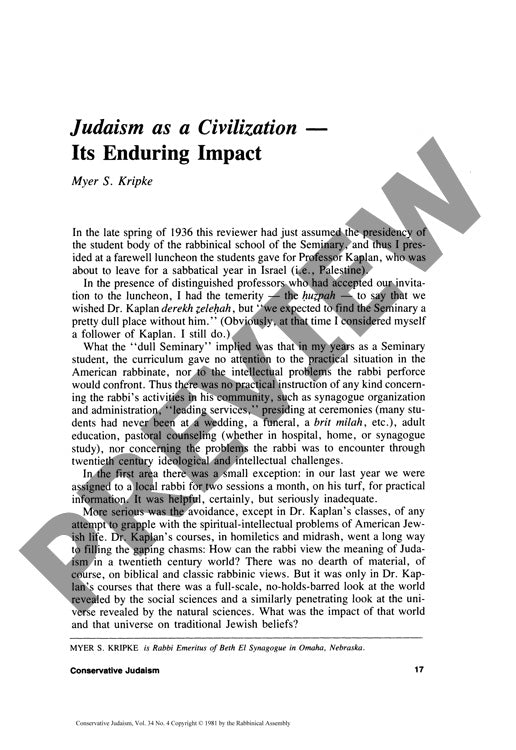Judaism as a Civilization Its Enduring I
Couldn't load pickup availability
Mordecai Kaplan's 1934 masterwork "Judaism as a Civilization" fundamentally reshaped American Jewish thought by reconceptualizing Judaism as a dynamic religious civilization rather than solely a theological system. Drawing on personal experience as both Seminary student and rabbi, this evaluation traces how Kaplan's Reconstructionist philosophy addressed the core challenges facing American Jewish communities in the twentieth century. The analysis reveals that while Kaplan's non-supernaturalist theology provided crucial frameworks for maintaining Jewish commitment alongside scientific worldviews, his comprehensive theological program achieved mixed success - significantly influencing Jewish leadership and institutions, particularly within Conservative Judaism, yet failing to gain widespread popular adoption. Though the Holocaust and other twentieth-century tragedies exposed limitations in his approach, Kaplan's civilizational understanding of Judaism continues to offer vital insights for contemporary Jewish life, especially regarding Jewish peoplehood, religious evolution, and community organization. The methodology employed is primarily evaluative, examining Kaplan's enduring impact across Conservative, Reform, and Orthodox Jewish movements through analytical review and practitioner reflection.

More Information
-
Physical Description
-
Publication Information
Published 1981
ISBN
-
Publication Credits
Myer Kripke

